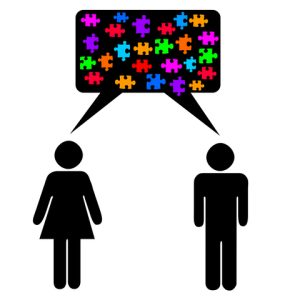“There is strength in numbers.”
June 19, 2014
Numbers can be powerful; they draw a lot attention depending on how they are presented, what is presented, and how big they are.
Maybe if the numbers about the multiple sclerosis population were given more attention, a larger draw of funds donated would be given for research to cure, stop, and restore this disease. And it would increase public awareness about MS.
What kind of numbers and what could be done?
1. Update the number of people who have MS.
The same numbers have been used for years, maybe decades–400,000 in the U.S. and 2.5 million worldwide. These same numbers are used by everyone—MS Organizations, Pharmaceutical companies, Health organizations, the government…
In March, 2006, there is a document that was published that said:
“Steps are now being taken by a federal agency and by the National MS Society… including a proposal to develop a national surveillance system for MS and the launching of a National MS Society Task Force on Epidemiology. These efforts should help to bring researchers closer to identifying a possible cause of MS and should bolster programs and advocacy on behalf of people who have the disease…Conclusions: It has been over 30 years since the federal government has seriously addressed the issue of incidence and prevalence of MS, so the interest on the part of the ATSDR in tracking MS is a welcome and major step forward.” http://www.medicalnewstoday.com/releases/40510.php
Sadly, it never happened. The perspective of 400,000 persons can seem miniscule relative to a population of 300 million in the U.S., and compared to other chronic illnesses and diseases.
Most people involved with the MS community would agree that the current numbers used are much understated. Is it due to people getting diagnosed earlier as a result of more sophisticated technology enabling faster diagnosing, or is MS becoming more prevalent? When it comes to the total number of people living with MS, does it really matter?
When I told people thirty years ago I had MS, there was so little awareness and many people had never heard of it. Nowadays when I tell people, most people tell me they know someone who has MS. I’m not alone in this observation.
2. If the estimated cost to support a person with MS were publicized, the public would be amazed.
Let’s face it, MS is an incurable disease right now, is progressive over time with increasing disability for most patients, and lasts a lifetime. What kinds of costs? Doctors, specialists, physical/occupational therapy, ongoing tests, medications/treatments, walking aids, adaptive equipment, adaptive housing, medical supplies, hospital stays, in-home nursing…the list is endless. Stated on the NMSS website, it is estimated that it costs upward to $70,000/yr. for one patient living with MS.
Who is footing the bill for all of this? If people had any idea of what it costs to help a person with MS (e.g. annually, over a lifetime…), or overall what an estimated cost would be to support all MS patients, I bet those outside the MS community would reach into their pockets more. For example, a power chair can cost up to $20,000; the annual cost of a DMD could cost $20K–$60K annually, a required MRI is at least $1,000, etc.
People don’t think about costs of a health problem until they are personally affected. Making the public aware of costs associated with MS would at least cause them to stop and listen.
3. How many people with MS are on Social Security, and what is their average age?
Information about Social Security generally attracts attention. Numbers about patients with MS on SS should be explained in conjunction with the realities of MS disabilities: educating what the disabilities are and what a person with MS goes through to get on disability. (see http://debbiepetrina.authorsxpress.com/?p=289 )
4. Graphs, like pictures, can be more effective than a thousand words. And what is shown on those graphs can raised eyebrows.
Some examples: a graph could show the percent of persons with MS with various symptoms (% with fatigue, bladder, vision, bladder, walking problems); a timeline of after diagnosis, how soon the average MS patient develops certain symptoms; the process and effect that drugs/treatments has on a MS patient; the rise of MS cases in the military.
Get graphic and show realism. There are times and places to show what people with MS can’t do; or, what it takes to help them to be able to do.
5. Show the combined efforts of MS activity on a national scale, more often.
Much independent activity by MS organizations, pharmaceuticals, MS clinics, are going on but the activity is usually within their own domain, on a local level, or in a specialized newsletter or magazine. Collaboration of all of these individual activities, or “the sum of the parts” would demonstrate the magnitude and dedication of MS. Again, there is strength in numbers.
The media thrives on numbers, human interest stories; everyone—“big or small”—can become an advocate alone or with an organization. And there are certainly enough celebrities out there with MS that I bet would participate in sharing the realities of this debilitating disease as they display their courage living with it at the same time.
Yes, getting these numbers and creating strategies would take money and time. But it would be an investment, with a great return on that investment in donations, grants, and funding.
These are my thoughts. Maybe I am wrong, and things are happening that I am not aware of. I am interested in your comments and your ideas about this subject and content.
www.DebbieMS.com
Author, MS Counselor/Living with MS
Please visit my website for more articles, videos, my book, MS information and resources.

 “Strategies & Tips”
“Strategies & Tips”

